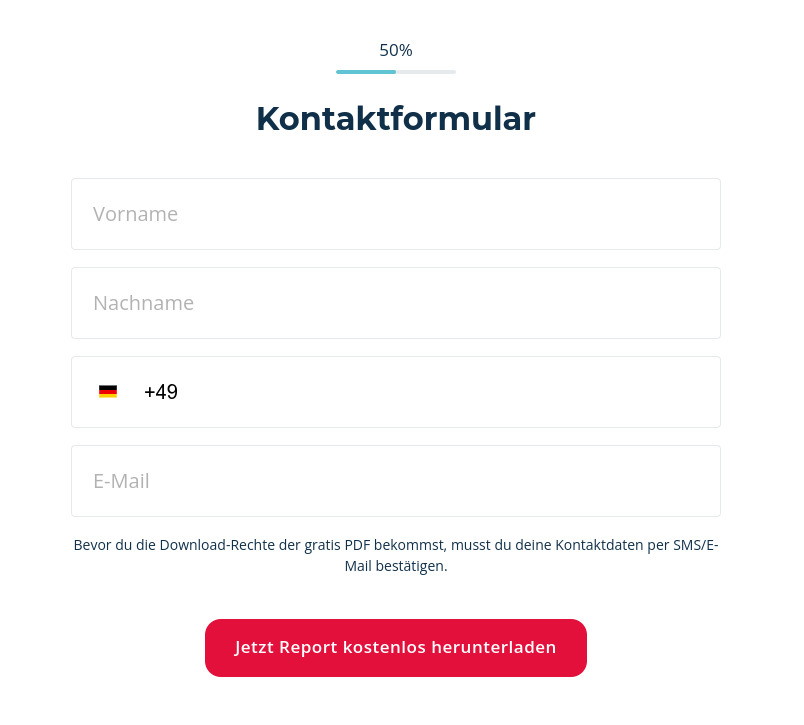Ethically correct websites are online presences that consider the rights of users and customers in a special way.
The Islamic Background
For Muslims, this has an additional dimension. Muslims, like other Abrahamic religions, believe in a Day of Judgment. On this day, not only will individuals be judged for their good and bad deeds before Allah ﷻ, but there will also be an account of interactions among creatures. Every creature, from humans to animals, has been assigned certain inviolable rights by Allah ﷻ. If, during their lifetime, a person violates the rights of another human or animal, this will be subject to settlement on the Day of Judgment unless the one whose rights were violated forgave them during their lifetime.
These rights are diverse, ranging from the protection of life, physical integrity, and property to moral rights such as fair trade, respect for privacy, and protection against slander and defamation. All creatures are included in this rights system, not just humans, not just Muslims. The settlement of these rights begins on the Day of Judgment, as mentioned in a Hadith, where a hornless goat will accuse another goat with horns of attacking it. Not the slightest injustice will go untreated.
The statement “Life is unfair” is often heard. Yes, that’s correct. According to Islamic belief, the afterlife (Akhira) is where injustices from this life are rectified, and justice is established down to the smallest detail. These ‘rights of creatures’ are a delicate matter. Allah may, if He wills, forgive all sins committed against Him and oneself, but whether humans forgive the injustices of other humans is a different matter. Often, they do not.
These rights are settled by the debtor transferring a portion of their rewards for good deeds to the victim on the Day of Judgment. If they have no rewards left, the sins of the victim are charged to them until all accounts are settled. It is a kind of transaction in another form of currency—the only currency valid on that day: Hasanats or Thawab. These are the values that Allah ﷻ allocates to people when they perform good deeds or deducts when they commit sins. Muslims believe that one should strive to keep their Hasanats account in the black, although one never knows the balance of one’s account.
In such a long life, especially as a business-savvy adult Muslim, there is not only an earthly account (in dollars, euros, or bitcoin) to manage but also an Akhira (afterworld) account. It can happen that one improves their earthly account at the expense of their Akhira account. If one earns money through unethical business practices according to Islamic law, Allah ﷻ will record Hasanat debts for the Day of Judgment because either Allah’s ﷻ rights, the rights of His creatures, or both were violated. This would be a bad deal because, as Muslims say, one has ‘sold their Akhira for the world.’
Implementation in Ethically Correct Business Practices
Islamic economic and commercial law is a broad field that addresses which practices are forbidden or frowned upon and what is allowed or neutral. Honestly, many Muslims still struggle to consistently implement these principles in their business lives today. The situation is even bleaker in the field of website development or design. Here, applicability is more challenging, as it requires precise knowledge of the technology and practices employed, and the implementation is more abstract. Choosing cleaner alternatives is sometimes less known, uncomfortable, or associated with more costs.
Ethically correct website development addresses precisely these issues.
In this relatively new and scarcely recognized field, all elements and aspects of a website are examined and designed according to (Islamic) legal criteria. Solutions come in part from the field of data protection experts but not exclusively. It also involves proper, clear communication or better technical configuration. It is essentially an interdisciplinary topic, but behind it, there is always a pure intention: to establish the highest possible level of fairness in every type of interaction between website operators and visitors or customers.
Some Examples
The transparency requirement in trade and the inviolability of privacy
In an economic transaction, the customer must be informed in detail about the goods and the price. If, for example, I sell someone my used car, I must inform them in detail about its flaws, every small dent, and scratch. I am not allowed to withhold anything in this regard, as it could otherwise fall into the realm of fraud.
This applies equally to every online transaction, whether I offer shippable goods in an online shop or a ‘free’ download or newsletter. In these cases, the customer gives something in return—namely, their personal data such as email address and sometimes even name and phone number. Here, their right to privacy comes into play. Disclosing such personal data is always associated with a risk of misuse. One provides their email address and could, therefore, receive unwanted advertising. Or it could be sold to other companies. One provides their phone number, and as a result, strangers might harass them with calls. Therefore, the customer or subscriber must be informed in advance about exactly how their data will be used and how it will not. According to the transparency requirement, they must know precisely whether they will only receive the desired download or newsletter in exchange for the disclosure of their privacy or whether other processes are linked to it. Only then can they fairly agree to a transaction with full knowledge of all consequences.
Case #1
Here’s a small case study that recently came to my attention while inspecting someone’s website.

Someone is offering a PDF download in exchange for Name, Email address, and Phone number. The data minimization principle suggests that only as much data should be collected as necessary for the execution of a function or service. In this case, providing a link to the download should be sufficient. If the download file is sent or for a double opt-in, an email address is necessary. But that’s all. I asked why Name and Phone number are also requested. The operator mentioned that the phone number is needed for a confirmation SMS, in addition to a confirmation email, as stated in the form. Well, that’s redundant, I said. Usually, an email confirmation is sufficient, especially for less sensitive data. “Yes, but we also want to call people at some point,” the operators revealed. And for that, they naturally want to address potential customers by their name. So, it’s about lead generation. However, this is not mentioned anywhere, neither in the form nor on the previous page leading to the form.
Several things are going wrong here. The main purpose is hidden from potential customers, and there is no consent requested for processing this sensitive data. At this point, a legally required checkbox with a link to the terms and conditions and the privacy policy is missing, explaining exactly what happens with the collected data. This is not legally correct and also morally questionable.
Case #2
Here is a positive example of how a page for ordering a newsletter should look like. This is how I implemented the newsletter of my project Islamic Marketplace.

The following legal provisions have been adhered to:
- 2-factor authentication. Entering an email address and pressing ‘Subscribe’ is not sufficient. The subscription must be confirmed a second time by clicking on a link in an email.
- The terms and conditions (AGB) and privacy policy are linked, and explicit consent must be given.
- The actual agreement is reached in the terms and conditions and the privacy policy. Many, especially abroad, often overlook that both documents state at the beginning who operates the entire website. The subscriber knows who they are entering into this agreement with and who is responsible. Many newsletter providers or website operators incorrectly believe that contracts can be entered into anonymously. Also read Don’t Use A Fake Persona in Online Business
- It is specified for what purpose the email address will be used. In this case, only for sending the newsletter.
- The data minimization principle is adhered to; no more than the email address is requested.
- There is a notice that the newsletter can be unsubscribed at any time with a click on a link in each newsletter issue (right to withdraw from the contract and to deletion of data).
- The expected frequency is indicated (every 7 or 14 days).
- There is a signed Data Processing Agreement with the newsletter service provider Sender.net, which can be presented at any time (GDPR requirement). Similarly, there is a signed Data Processing Agreement with the host of the entire website.
- If the external third-party provider of the newsletter service sets its own cookies or uses JavaScript for the installation of the registration form, this must be cleanly separated in the cookie consent banner. Those who agree to all cookies also see the newsletter form during their first visit to the site. Those who say “I only accept the elements necessary for the operation of the website” should not see a newsletter form from a third-party provider at this point. They must explicitly consent to the inclusion of the form by the third-party provider via JavaScript to subscribe to the newsletter.
For further technical details, refer to my article on Islamic Marketplace: “How to Build a Newsletter Service that Complies with Islamic Principles and European GDPR Law” from the Ethical Website Creation series.

The same newsletter page as described above, but with an additional agreement to include JavaScript from a third-party provider.
In addition:
- The type of content is specified.
- It is not concealed that sponsored content and advertisements may occasionally appear in the newsletter.
- Real testimonials, linked to the original source, which subscribers can verify.
As you can see from this example,, setting up a clean newsletter service is not a trivial matter.
Data Disclosure
Just by visiting a website, visitor data is generated, collected, and can be shared. For example, if a website uses Google Analytics, visitor data is transferred to a privacy-law insecure country like the USA. Google, in turn, has its own partner companies with which it can share this data. Does the visitor know about this? Is the collection of their browser data, which combined can potentially identify them and, in the most extreme case, violate their privacy, withheld until they have been informed and explicitly consented?
Prohibited Transaction Types
Muslims are not allowed to do business with certain goods and services, such as interest-bearing credit transactions, gambling, alcoholic drinks, etc. The promotion of these goods and services is also prohibited. Does the third-party provider’s embedded banner rotation module include advertisements from such products and services?
Selling What You Own
Muslims are only allowed to sell what they own or have in stock at the time of sale. Forward-selling, where one only orders the goods from another provider after receiving an order and then sells them to the customer, is not allowed. Therefore, an online shop must have appropriate inventory management to prevent more orders from being received overnight than can actually be delivered.
Overlap with Secular Law
These were just a few examples, but it’s evident that there is an overlap with secular law. Europe, especially Germany, has some of the strictest consumer rights. Many things are detailed in European data protection and online law. It is crucial for anyone, whether based in Europe or outside but targeting European customers, to adhere to these regulations.
As Muslims engaging in online business, we can adopt this legal framework without any concerns as it is compatible with our principles. Additionally, there are a few things allowed in secular law but forbidden for Muslims. We also have the tradition of treating the customer as king, ensuring that they are genuinely satisfied with their transaction. As sellers, we prefer to give a few grams too much rather than too little. So, we must go the extra mile.
And this is precisely the focus of ethical website development.
Ethically correct websites benefit everyone, regardless of their faith or worldview.
In the article series “Ethical Website Creation“, you can read more about it.
Where does this new field fit in?
Since the 90s, we have incorporated many sub-disciplines into website development. It started with technical and functional aspects, then ergonomic aspects (which include many other fields such as communication, design, accessibility, etc.). As the web became more popular and cyber attacks increased, we focused on security aspects. With the newer criteria of search engines, performance, i.e., loading and build speed, became important. Then, governments in Europe, Canada, or the USA/California introduced consumer rights on the web. Alongside this, the web, with increasing commercialization and social media, underwent a darker development. Some business models perfected exploiting perceptual and legal gaps to extract as much as possible from their ‘product,’ the registered user. Since then, the big data and content industry has been in a cat-and-mouse race with legislation, and this will continue for a while.
Regardless of this cat-and-mouse game, the field of ethical websites has now emerged, particularly of interest to us Muslims. We are already trying, within the realm of the possible and the known, to bring a high level of respect for the rights of visitors and customers and implement it in our current IT practices. It is time for this discussion to take place among Muslim IT professionals and entrepreneurs. When looking at a large portion of online presences operated by Muslims, the situation looks quite grim. It is feared that many, albeit unconsciously, are selling their Akhira for the Dunya. Making a mistake during website implementation could potentially affect thousands of visitors or customers. Therefore, we must approach each aspect of this topic with particular caution and delicate individual examination. I call on all Muslim colleagues in IT to contribute to this area. It is about nothing less than making clean business without losses in this world and the hereafter.
Advertisement:
Do you want your existing website to be checked against ethical principles or have one developed?
Visit https://mslmdvlpmnt.com/ethical-website-creation/ for free quick tests and commercial in-dept analyses!
German version of this article: Was ist ethisch korrekte Website-Entwicklung?





0 Comments